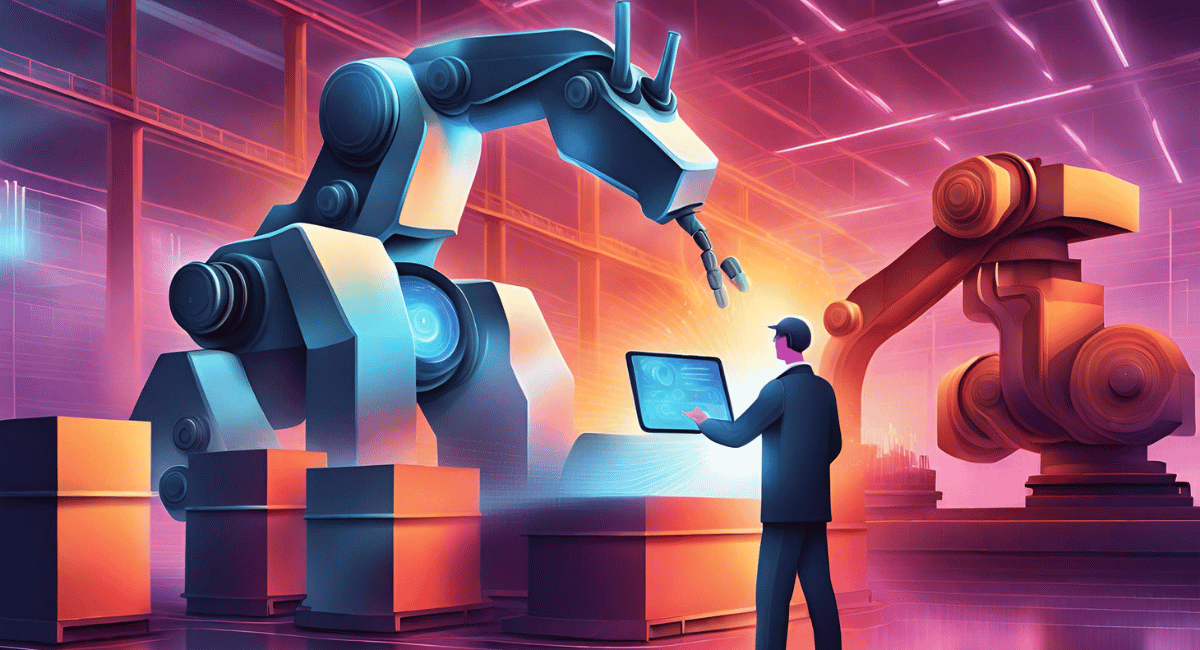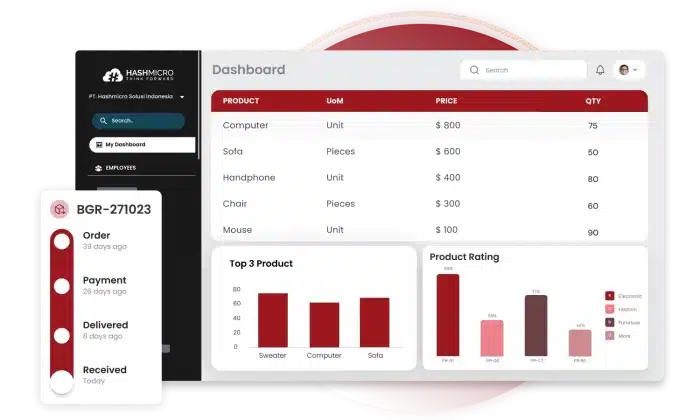In the previous article, we explained why supply chain management requires digital transformation. Now, let’s move on to one of the vital aspects of the supply chain, which is the manufacturing production process.
With rapid advancements in technology, companies in the manufacturing industry are now faced with the necessity to digitalize their production processes. This change needs to be implemented not only in production aspects but also in business, to maintain competitiveness in an increasingly tight market.
Did you know that more than 80% of companies plan to accelerate their digital transformation?
If companies do not keep up with the digital current, they risk falling behind and losing market share. A study from L2L also mentioned that 75% of respondents believe that their competitors are far ahead in digitizing their companies. Therefore, it is crucial to take immediate steps toward digital transformation to ensure the continuity and success of the business in the future.
Key Takeaways
|
Benefits of Digital Transformation for the Manufacturing Industry
Although only 24% of the manufacturers surveyed currently have a digital transformation strategy, as many as 30% have expressed their intention to significantly increase their investment after 2022. Additionally, the Asia Pacific region dominates digital transformation in the manufacturing industry.
This data confirms a crucial shift in the industry landscape: competition will intensify with digital transformation, and companies that do not adopt it will be significantly left behind.
Digital transformation is not only essential for staying competitive in the market but also provides numerous benefits for manufacturing companies, such as:
1. Cost Savings
Digital transformation helps save on operational costs in factories. Statistics show that the use of augmented reality (AR) for troubleshooting reduces overall costs by 11%. For example, the use of AR speeds up the troubleshooting process while saving costs because troubleshooting can be done from anywhere, without the need to be physically present at the location.
2. Reducing Downtime
Downtime is a major contributor to losses in the manufacturing sector. Studies have found that an hour of downtime can cost a company up to 300,000 US dollars. With digital technology, downtime can be significantly reduced by 30-50%.
3. Enhanced Data Visibility
Companies can have better and more transparent access to their production data. With increased data visibility, companies can easily monitor every aspect of the manufacturing process. A study shows that companies implementing ERP solutions, which enhance data visibility, can experience up to a 35% increase in operational efficiency. This helps in identifying areas needing improvement and ensures more efficient resource utilization.
4. Improved Production Quality
Manual production often experiences many errors. Additionally, the quality of each product is inconsistent due to poor coordination and unstandardized processes. With an integrated system, the production process becomes more coordinated, and the common errors in manual production can be minimized.
As a result, companies can produce higher quality and more consistent products. With digital transformation, production quality improves by up to 34%. Digitalization provides tools that support quality control, ensuring that each product produced meets established quality standards.
Differences Between Conventional and Digital Production Processes
The table below presents a comparison of conventional and digital production processes in manufacturing.
| Aspek | Manufaktur Konvensional | Manufaktur Digital |
| Downtime in production | 82% of companies experience unexpected downtime causing losses up to USD 2 million. | Manufacturing companies with digital transformation can reduce unexpected downtime by 30-50%. |
| Inventory management | Inventory storage costs account for 20 to 30% of total inventory costs. | Automated inventory management reduces storage costs by up to 20%. |
| Revenue | Conventional manufacturing revenue varies depending on the industry type, but does not grow as quickly as digital manufacturing. | The manufacturing industry is expected to reach a revenue of USD 367.60 billion by 2024, growing at a CAGR of 19.40%. |
| Use of raw materials and energy | According to the International Energy Agency (2020), the manufacturing industry accounts for 26% of global CO2 emissions and 38% of global energy consumption. | 80% of companies implement sustainability by reducing energy and raw material usage. |
| Production efficiency | 9% of manufacturers who have not digitalized their factories risk falling behind competitors due to inefficient production. | Production efficiency is expected to increase by 10% to 15%. |

Conventional production processes in manufacturing often involve manual steps at each stage of production. This includes operating machines, monitoring production by operators, and manually processing data. Although this has been common practice for years, the process is slower, less efficient, and prone to human error.
On the other hand, in digital production processes, technology is widely used for automation and optimization. This includes the use of sensors to monitor and control machines, real-time data analysis for accurate monitoring and forecasting, and the implementation of digitally connected manufacturing systems for better coordination between various production stages.
Risks Faced if Manufacturing Companies Delay Digital Transformation
Only 24% of manufacturing companies have undergone a comprehensive digital transformation, despite manufacturing playing a central role in the supply chain. This limitation exposes these companies to various risks and losses.
Here are further explanations of the risks incurred if manufacturing companies choose to continue operating manually:
1. Difficulty in monitoring the entire production process
One of the main weaknesses of the conventional manufacturing system is the difficulty in effectively monitoring the entire production process. In many cases, often inconsistent manual monitoring makes it difficult for production teams to obtain an accurate and up-to-date picture of production status.
The inability to monitor the production process can lead to various problems, including unexpected inventory buildup, production delays, and a decline in product quality.
2. High operational costs
Manufacturers that have not transitioned to digital transformation often face higher operational costs, especially due to unplanned downtime. Equipment failures or system inefficiencies can be very costly, with the overall industry losses estimated to reach $50 billion per year.
Without the ability to monitor equipment conditions in real-time, companies often realize problems too late, resulting in disruptions in production and unexpected maintenance costs.
3. Low efficiency in production processes
In traditional systems, many operations are performed manually or with outdated equipment, which often contributes to inefficient use of time and resources. These shortcomings lead to increased production cycle times and high levels of waste or production defects.
Moreover, the lack of integration between departments in a conventional setting often causes communication barriers and errors in information transfer, exacerbating efficiency issues.
4. Falling behind competitors
Conventional companies are slow in identifying trends and implementing necessary changes, thus giving agile competitors the opportunity to seize market opportunities and expand their market share.
As a result, conventional companies may experience a decline in sales and profits. They risk losing relevance in the eyes of consumers who increasingly expect innovative and responsive products and services.



































